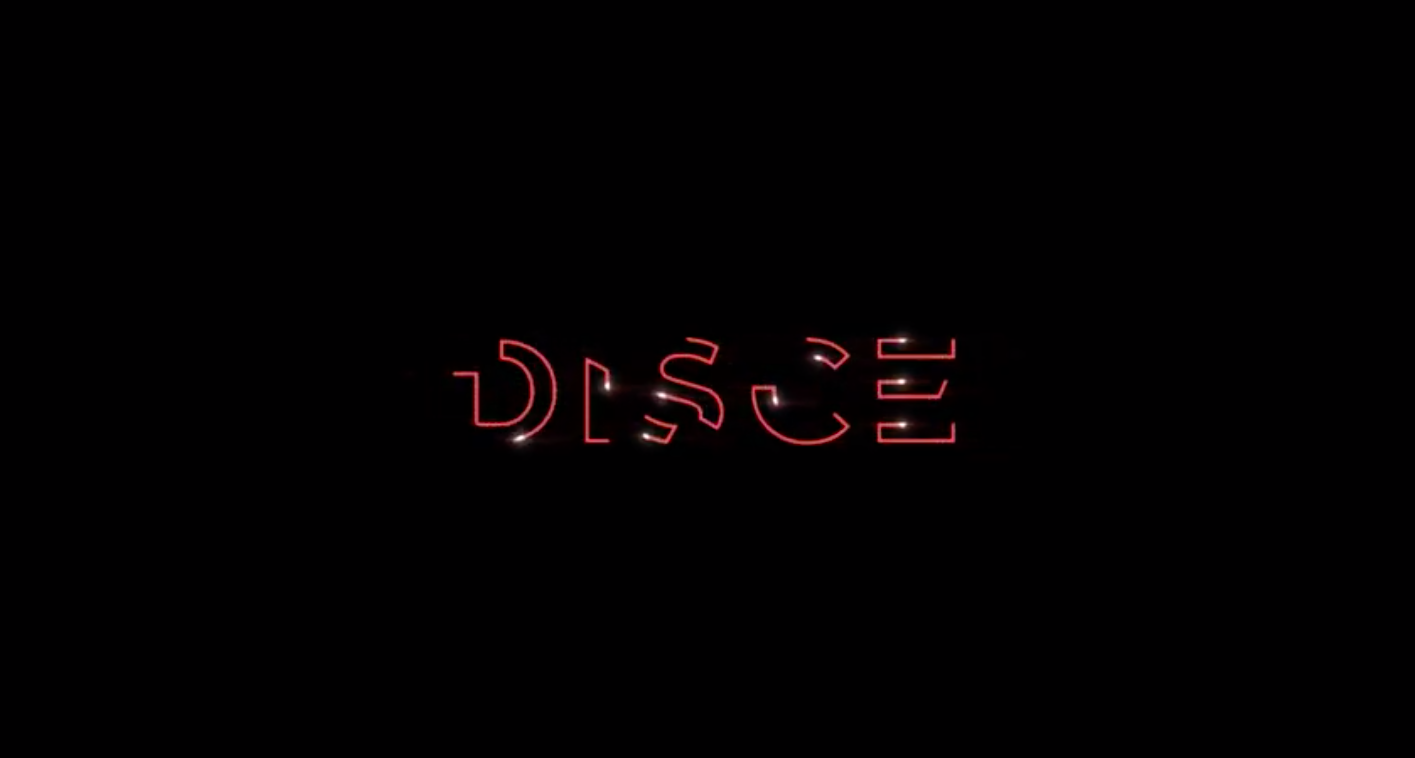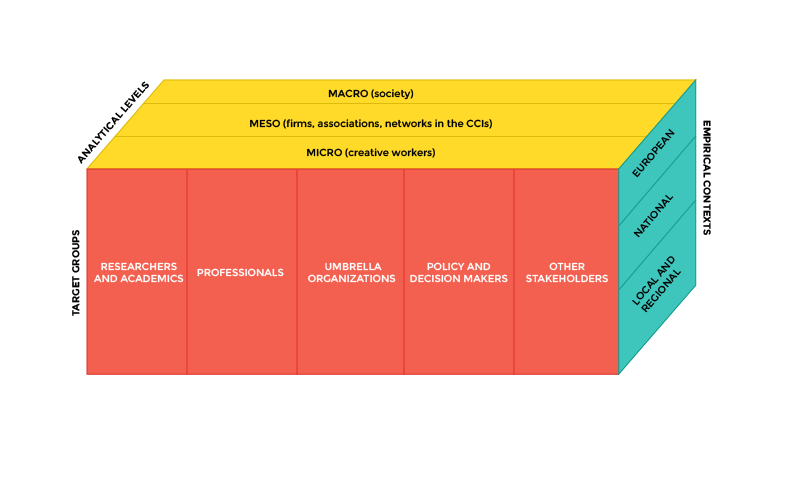AIMS AND OBJECTIVES
The DISCE – Developing Inclusive & Sustainable Creative Economies project is set to improve and enhance the growth, inclusivity and sustainability of the CCIs in the EU. Overall, the ambitious objectives of DISCE are:
– To support the development patterns of the CCIs within the EU through improved indicators on their performance;
– To contribute to the economy through research on career perspectives, skills development, new business models and inclusive growth;
– To re-shape understanding of what ‘inclusive and sustainable growth’ consists of in this context, shifting the CCIs (and CCIs policy) towards strategic goals of ‘cultural development’ that encompass both GDP and human flourishing.

The Themes
This theme aims to develop a comprehensive understanding of CCIs, their performance and contribution to the economy and society through improved indicators and characterisations at both a national and EU level. It will address the definition, measurement and characterisation of the CCIs. By moving from summarising the current state of knowledge on the CCIs in the EU, it will provide a proposal of definition and taxonomy suitable of being operationalised statistically. Once a referenced taxonomy is fixed this theme will delineate a comprehensive descriptive profile of the European CCIs, also including clear recommendations and operative routes for all European countries in the direction of the development of a more extensive statistical framework to monitor the CCI sector in the Union.
This theme underlines Work Package 2 in official work programme of DISCE.
This theme aims to explore the origins and trajectories of creative careers, considering the role that skills development and specifically higher education play within an inclusive creative economy. It will explore how and who currently has access to and opportunities within the creative economy but also who is excluded or exploited. It will consider how the creative economy has provided new models of employment and job opportunities across Europe but how it has also created inequalities and poor working conditions in volatile sectors. Finally, we will look at new frameworks for workers’ rights, best practices for workforce development and activism as responses that can improve access and education as well as the quality and sustainability of creative careers over time.
This theme underlines Work Package 3 in official work programme of DISCE.
Disrupting existing ways to do business and developing new innovations and ways of access to funding and return of investments will contribute to a brighter future of creative workers and businesses in the creative industry. Technological advancements such as digitisation are paving the way for new types of creative agents and businesses, new ways to find and service customers as well as additional financing opportunities contributing to employment and growth both at the individual and firm levels. Innovation and new business model development will be supported and empowered by working closely with the creative workers, businesses and their networks. The project results will be translated jointly with the policymakers into more effective policy responses for the creative economy.
This theme underlines Work Package 4 in official work programme of DISCE.
This theme aims to ‘rethink’ inclusive and sustainable creative economies, addressing two fundamental questions: what do creative economies consist of? And how do they produce and recognise value? By exploring these questions, the research will increase understanding of the range of people and ‘cultural resources’ involved in creative economies, and the systemic relations between them. In doing so, it will investigate the conditions of connectivity and care that enable (and constrain) cultural opportunity within Europe’s creative economies. It thereby provides new empirical insights into how creative economies work, and offers a vital set of conceptual and normative tools with which to understand what the growth of creative economies can mean, and in what ways such growth is a good thing.
This theme underlines Work Package 5 in official work programme of DISCE.
DISCE is designed to enhance policy and stakeholder interaction that goes beyond the surface and that is fundamentally integrated throughout the activities of the project to maximise sustainability of the outcomes. In this way DISCE aims to engage and communicate with the largest possible number of stakeholders in the intended purpose of developing creative economies that are more inclusive and sustainable, with the declared intention of involving them (directly or through their structured representations, organisations and networks) in the research, including when applicable their participation in co-creation activities, workshops, surveys, and identification of case studies. Policy recommendations will be presented in policy briefs and roundtables. Dissemination will promote widely the spread of DISCE results among those who can benefit from them in terms of research, policy action or cultural management strategy and decision making.
This theme underlines Work Package 6 in official work programme of DISCE.
OUR APPROACH
The DISCE project combines a range of methodologies to maximise its robustness as well as its reach and impact:
- Quantitative mapping and statistical analysis to give a better understanding of the inclusive and sustainable development of CCIs in Europe
- Case studies to provide in-depth understanding of issues of growth, inclusivity and sustainability in specific case study city-regions
- Interactive workshops and co-creation events to engage with stakeholders to validate the policy relevance of the project and co-design and co-produce the research to achieve long-term impact and sustainability

